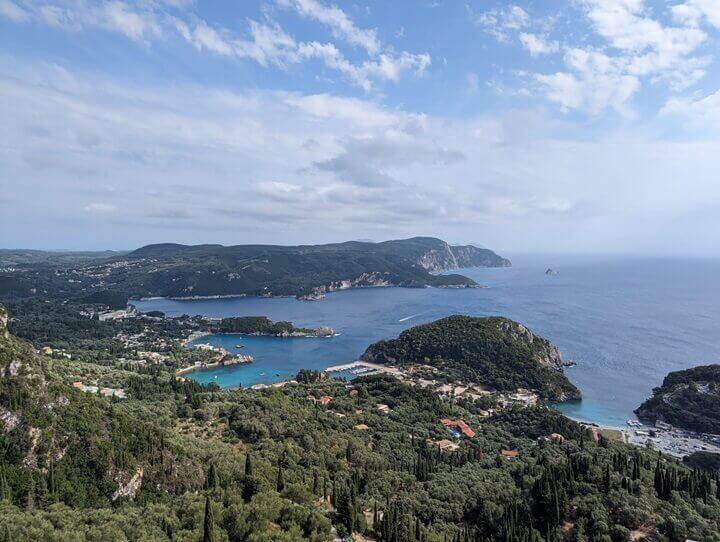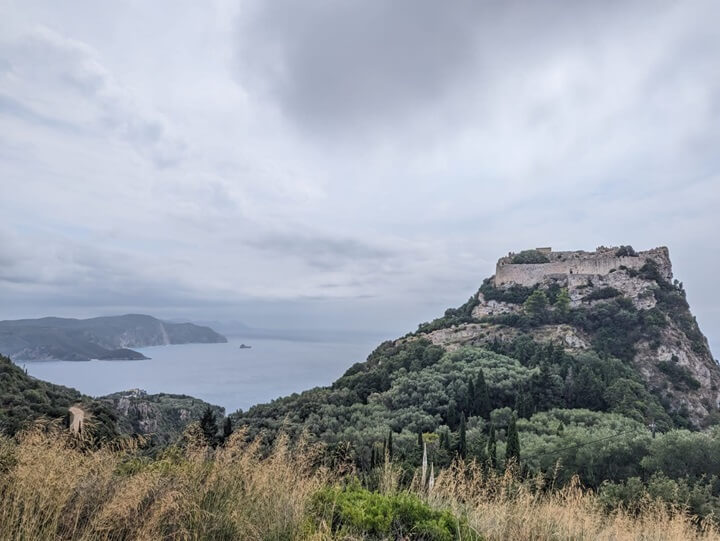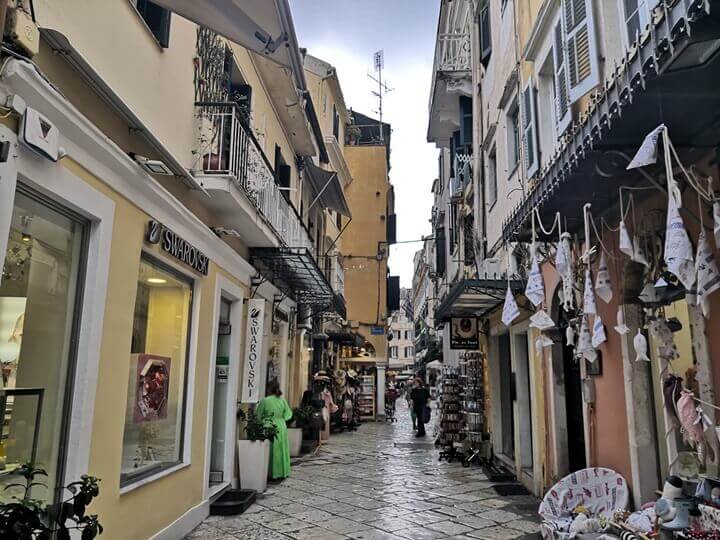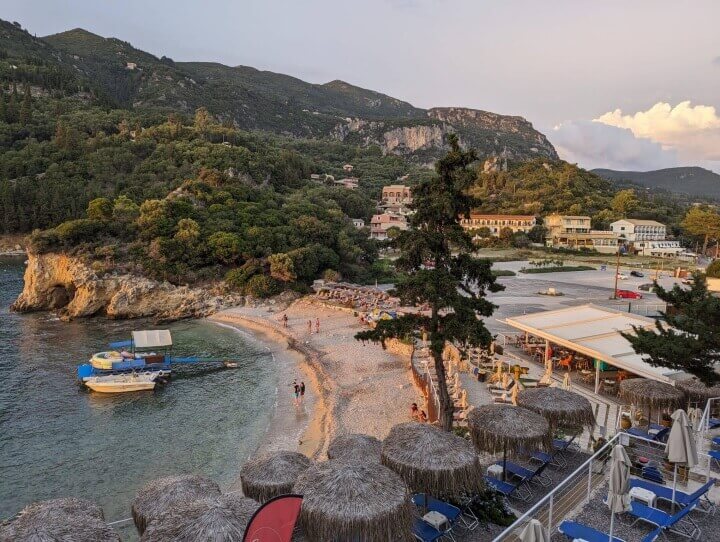Is Corfu Safe to Visit in 2024? The Ultimate Guide
Wondering if Corfu is a safe destination for visitors? This article provides a comprehensive overview of safety on the island.
As one of the greenest Greek islands, Corfu is famous for its idyllic beaches, breathtaking landscapes, and the unique melting of different cultures. Its affordability and accessibility only enhance its appeal.
Fortunately, Corfu is indeed a safe place for visitors, with minimal chances of encountering any unwelcome incidents. The island enjoys a low crime rate, boasts secure beaches, has a negligible risk of severe natural disasters, and is home to few dangerous animals.
During my nearly two-week stay in Corfu, I consistently felt safe and experienced no dodgy behaviour. The only time I exercised extra caution was on the unfamiliar, often winding roads, where not all drivers might adhere to speed limits.
This article will delve into the various safety considerations for travelling in Corfu, offering tips to make your trip even safer. Additionally, it includes emergency contact information, in case you need assistance during your visit.
Disclosure: Some of the links below are affiliate links, which means that at no additional cost to you, I may earn a small commission if you click through and make a purchase. Please note, I only recommend products and services that I know and love. Read full Privacy Policy here.
Is Corfu Safe to Visit?
The short answer is yes, Corfu is safe to visit. The island sees little crime, so there is a low chance you will encounter any distressing incidents or scams. Generally, you can feel secure while walking around Corfu at night or exploring its more remote spots.
Corfu is not prone to severe natural disasters and doesn’t have much dangerous wildlife, adding an extra level of safety. Local roads do offer some heightened risks, but as long as you are a sensible road user, you are likely to have a good experience.
This, of course, doesn’t mean that you should let your ‘holiday brain’ kick in completely when in Corfu. It’s important to exercise the same level of caution in Corfu as you would in your home country.
Safety Issues in Corfu
While Corfu is overwhelmingly a safe destination, it’s good to be aware of any potential safety risks that you might encounter on your travels. Forewarned is forearmed as the saying goes.
Crime in Corfu
Corfu boasts one of the lowest crime rates in Greece, with violent crimes being exceptionally rare. While petty crime, such as theft and pickpocketing, does occur, incidents are relatively uncommon.
Most tourists enjoy their stay without encountering any criminal activity, but maintaining the same level of vigilance as you would at home is a good idea.
Pickpocketing may happen in crowded locations, so it’s wise to watch your belongings closely in busy areas such as Corfu’s Old Town. Even if you visit Corfu in the shoulder season, like I did, you will still encounter crowds in some parts of the island, so this is something you always need to vigilant about.
Be cautious at the beach, where leaving items unattended during a swim could tempt theft. Always keep an eye on your possessions, even while in the water.
Hotel room break-ins, though not commonplace, can also occur. Reduce your risk by locking your room and storing valuable items such as passports and cash in a safe or a well-hidden spot.
There have been isolated reports of tourist scams, including taxi drivers and restaurants overcharging. Although such experiences are rare—I’ve personally never encountered them—it’s best to check your restaurant bills and familiarise yourself with standard taxi fares to your intended destinations to prevent overcharging.
Beach Safety
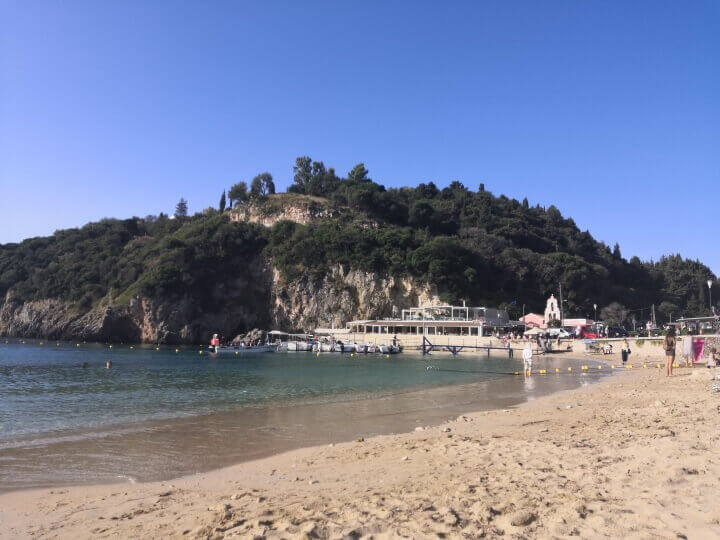
Enjoying local beaches is one of the best things to do in Corfu. Although beaches there are generally safe, it’s best to exercise the usual caution.
Check local beach signs and flags and follow their guidance. Be aware of the conditions including winds, currents and tides as these can affect your swimming experience.
Know the limits of your ability when swimming in the sea and stay within the depths and water conditions within your comfort zone. Refrain from diving off rocks due to the uncertainty of what lies beneath the surface.
If you would like to rent any water sports equipment, be sure to check it thoroughly before use. Follow the instructions for safe usage.
Also, remember to protect yourself from the sun and avoid prolonged exposure. Don’t forget sunscreen and hats. Consider wearing a rash vest if you are planning to do water sports or even spend a prolonged time in the water.
Road Safety
Greece has one of the highest rates of road accidents in Europe. Although the situation is not as dire as in countries like Thailand where the number of preventable road deaths is shockingly high, it’s still best to exercise extra caution when driving on local roads.
Corfu’s roads can be particularly narrow and winding, posing a challenge for drivers who are not used to such conditions. It’s important to adhere to speed limits and navigate these roads with care.
You may notice that local drivers sometimes ignore speed limits and occasionally engage in dangerous driving behaviours. This does not mean you should emulate them.
Speeding and the failure of scooter riders and motorcyclists to wear helmets are primary contributors to fatal accidents.
Nonetheless, with a sensible approach to driving, exploring Corfu by car is an excellent way to discover the island and access areas beyond the well-trodden tourist paths.
Natural Disasters
Corfu is generally safe when it comes to natural disasters. The island is situated in an active seismic zone and does experience earthquakes. However, these are usually minor and brief.
Storms are common, particularly during the winter months, with the more severe ones capable of causing damage and flooding. When visiting the island, keeping an eye on the weather forecast is a good idea to avoid being caught out in adverse conditions.
As climate change progresses, Corfu may encounter more extreme weather events. For instance, in the summer of 2023, wildfires struck the northern part of the island, leading to the evacuation of thousands of people.
These fires, believed to have been ignited by arsonists, spread rapidly, exacerbated by prolonged severe heat and drought conditions on the island.
Nevertheless, such events are still relatively uncommon, so there is no need to stress much about them. If you find yourself in such a situation during your visit, be sure to follow any evacuation orders issued by local authorities.
Dangerous Wildlife
You’re unlikely to encounter much dangerous wildlife on Corfu, so it shouldn’t be a major concern for your next trip. It’s important to note, however, that the island is home to several snake species, the majority of which are harmless.
The only venomous snake on the island is the Horned Viper, easily identifiable by the distinctive horn on its nose. Although a bite from a Horned Viper can be serious, such incidents are extremely rare. If you are bitten, seek medical attention immediately.
Snakes are generally not found in touristy areas, as they tend to avoid human interaction. Nonetheless, if you’re hiking in more secluded spots, the likelihood of encountering one increases.
Should you come across a snake, maintain your distance and refrain from provoking it, as they only attack when threatened. Wearing sturdy shoes can provide added protection.
Safety Tips for Corfu
This section covers safety tips for different aspects of your Corfu travels, from health and wellbeing to road safety and staying out of trouble at night.
Keep Your Guard Up
When travelling, it’s all too easy to be lulled into a false sense of security and let your guard down. This is often just a side effect of feeling relaxed and enjoying yourself. However, it’s always best to remain cautious, no matter where you are in the world.
- Always be conscious of your surroundings. Even in destinations considered extremely safe, like Corfu, you may still come across individuals who do not have your best interests at heart.
- Be vigilant with your belongings and ensure they are secure to discourage pickpockets.
- Avoid displaying valuables in public to minimise drawing unnecessary attention.
Staying Healthy in Corfu
Here are a few tips on how to feel your best on your trip to Corfu.
Don’t Drink the Tap Water
Technically, tap water in Corfu is safe to drink. However, it’s best not to do it as it is considered ‘hard’ because of its high mineral content. This affects the taste of the water as well.
The water is perfectly fine for boiling a kettle, washing dishes, brushing teeth, and showering. However, for drinking purposes, it’s best to stick to bottled water.
Stay Hydrated
Speaking of water, with the heat of Corfu’s summers, staying hydrated is essential. You’ll likely sweat more and need to replenish your body’s water more frequently.
Water is the best choice for this, as alcohol can dehydrate you further, and sugary drinks should be consumed in moderation. Personally, I still enjoy a cold Coke on a hot day though.
Protect your skin
The Corfu sun can be intense. Always wear sunscreen outdoors, and reapply every couple of hours, especially as sweat and seawater can diminish its effectiveness.
Sunscreen is necessary even on cloudy days, as overcast skies do not fully block harmful UV rays.
If possible, avoid sun exposure during peak hours, between 11:00 am and 4:00 pm, and wear a hat, sunglasses, and long sleeves for added protection.
Buy a Mosquito Repellent
Mosquito bites are a common nuisance in Corfu. To reduce their interest and avoid itchy bites, pick up mosquito repellent from a local pharmacy.
Although they bite at any time of the day, mosquitoes are most active in the evening, so be particularly vigilant then.
Wear Water Shoes
They might not be the most stylish piece of footwear you’ll ever own, but many beaches in Corfu are pebbly and have rocky seabed. Avoid unnecessary pain and injuries by wearing these.
There are shops at pretty much every resort town where you can buy these relatively cheaply. You’ll thank yourself for it.
Avoid Dangers on the Road
As I’ve mentioned before, the roads in Corfu, like much of Greece, do not boast the same level of safety as those in many other European countries.
If you don’t want to drive at all, it’s relatively easy to explore Corfu without a car. You can take advantage of Corfu’s public bus networks or rely on local taxis.
If you do decide to drive, here are a few easy strategies to stay safe while navigating local roads.
Wear a Helmet if Riding a Scooter
Scooters are a popular way to ger around the island. I’m personally not a big fan of them, as their riders are extremely vulnerable on the road. However, if you are keen to go for a ride, be sure to wear a helmet.
Wearing a helmet is not just a sensible safety measure; it’s a legal requirement, with fines imposed for non-compliance. Despite this, you’ll notice quite a few people disregarding the law, and enforcement by the police is inconsistent.
Set a good example by adhering to the law and wearing a helmet.
Follow Road Rules
Abide by speed limits, adhere to road regulations, and exercise extra caution when driving, especially since many local roads are narrow and winding. If you encounter aggressive drivers, it’s best to simply let them overtake.
Don’t Drink and Drive
This advice might seem self-evident, yet it remains a common issue. Refrain from drinking and driving to avoid endangering yourself and others.
Corfu offers a wealth of taxi services, providing a safe alternative if you plan to have alcohol.
Staying Safe at Night
Although Corfu is relatively safe at night, it’s best to follow the usual safety measures you would observe at home.
- Avoid poorly lit and deserted areas
- Plan your return to your accommodation in advance, well before the end of your night out
- When at a bar or club, never leave your drink unattended
- Always stay alert and aware of your surroundings
Trust Your Gut
When assessing people and situations, trust your intuition. Usually, if something or someone seems off, it likely is. If your gut tells you to remove yourself from a particular scenario, it’s wise to follow this voice.
Corfu Emergency Services Number
In case of an emergency, call 112. This covers fire, ambulance and police.
The individual emergency numbers are as follows:
- Police: 100
- Fire Brigade: 199
- Ambulance: 166
- Coast Guard: 108
- Tourist Police: 171
Final Thoughts
So now you are equipped with the knowledge on how to stay safe in Corfu. Chances are, you will have a wonderful trip with no unpleasant incidents. However, if you do encounter issues, there are local services that can help.
Looking for more Corfu inspiration? I can highly recommend a visit to the beautiful coastal village of Paleokastritsa during your next trip. It boasts numerous scenic beaches, a wealth of things to do and a good selection of restaurants.
I also loved it because it’s easy to get there from Corfu Town and it’s a good base for great day trips in Corfu’s northwest. If you love history, be sure to visit the nearby dramatic castle ruins of Angelokastro.
Wondering how much time you actually need to experience the island? This guide to Corfu itineraries will help you plan your adventure. These Corfu day trip ideas will help you to flesh put your itinerary even further.
FAQs: Is Corfu Safe?
Yes, Corfu is generally safe to walk at night. However, the usual precautions apply. Avoid poorly lit areas and plan your return journey to your accommodation in advance.
Corfu is an incredibly safe destination for tourists. Violent crime targeted at visitors is practically non-existent and even petty crime such as pick pocketing and theft are relatively rare. However, still follow regular precautions such as looking after your valuables to minimise the chance of an unpleasant incident.
Overall, big-scale wildfires are rare on Corfu. However, with climate change and more extreme weather slowly becoming the norm, the 2023 scenario can potentially repeat itself. It may be best to avoid visiting Corfu at the height of summer in July and August to avoid extreme heat that plays a significant part in wildfire spreading.
Enjoyed this article on whether Corfu is safe? Bookmark or pin it for later.

Related Reads: Corfu
- Is Corfu Worth Visiting? 15 Great Reasons to Visit in 2024
- Is Corfu Expensive in 2024? The Ultimate Corfu Prices Guide
- Corfu in September: Everything You Need to Know in 2024
- How Many Days in Corfu Do You Need for a Great Trip
- Corfu Without a Car: The Ultimate Guide 2024
- The 10 Best Corfu Day Trips in 2024
- The 15 Best Villas in Corfu with Private Pool in 2024
- Is There Uber in Corfu in 2024? Everything You Need to Know
- One Day in Corfu Town: The Ultimate Itinerary
- The 13 Best Things to Do in Paleokastritsa, Corfu in 2024
- Angelokastro Corfu: Ultimate Visitor’s Guide in 2024
- Corfu Town to Paleokastritsa: Complete Guide 2024
- The 7 Best Restaurants in Paleokastritsa, Corfu in 2024


